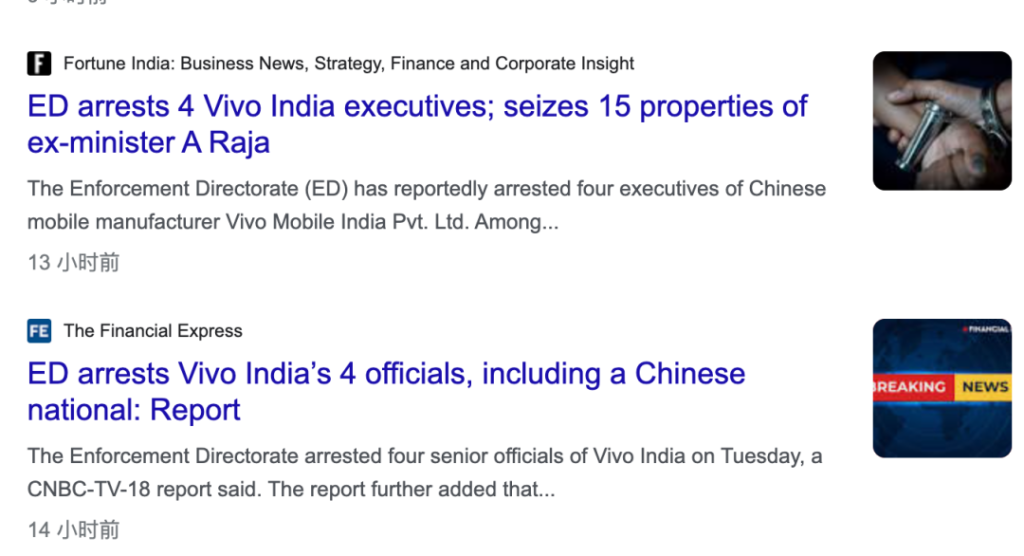The news of October 10, India’s financial crimes agency, Tuesday arrested vivo arrested four industry executives, including a Chinese national industry executives, accused of suspected money laundering.

Vivo responded, said an employee was arrested, but did not specify the nationality of the arrestees.
It also said, “The recent arrests by the Indian Enforcement Directorate (IED) are of deep concern to us. We will use all available legal means.”
Enforcement Directorate is yet to respond to this.
Earlier, sources close to the matter told the media that four Vivo employees were arrested and during the court hearing lawyers said that only one Vivo employee was arrested by the name of Guanwen Kuang.

The Indian law enforcement agency, asked for 10 days of detention, but the judge granted only three days.
It is reported that this arrest of Vivo executives may be related to the 2022 case.
In 2022, the Indian Enforcement Directorate, raided Vivo’s India office and accused it of money laundering.
It also blocked 119 bank accounts related to Vivo’s India operations, but the court later quashed the move.
Vivo has repeatedly denied the allegations, stating that “Vivo firmly adheres to its ethical principles and is committed to legal compliance.”
The latest IDC data shows that Vivo is already the largest smartphone brand in India in Q2 2023 and has maintained its growth, capturing 16% of the market share.

It is ahead of Samsung, Apple, Mi. vivo Y series is the sales leader of vivo, vivo Y200 has already started its preview in India and is expected to be powered by Snapdragon 4 Gen 1 mobile processing platform, 6.67-inch FHD+ 120Hz screen and 64 MP OIS main camera.
A lot of Chinese companies, in the last 18 months, have stepped on potholes in India.
“The same end of the world” OPPO, millet, Lenovo, India naturally did not let go, anyway, glory has been running overnight.
Mi Group is by far the worst loss, was frozen nearly 700 million U.S. dollars in assets.
India, on the other hand, has claimed that OPPO, wrongly used the tariff exemption and is going to make OPPO pay Rs 43.9 billion in back taxes, which is about Rs 3.7 billion.
In July this year, BYD had also wanted to spend $1 billion, to invest in India, and cooperate with Indian companies to produce electric cars and batteries in India.
But in the end, India rejected BYD’s $1 billion investment plan to build a factory on the grounds of investment security. At the same time it also started an investigation into BYD, mainly due to suspicions that the company had failed to pay about 730 million rupees, or about 63.6 million yuan, in taxes.
The problem is that BYD has only sold about 1,960 cars in India over the past two years, and its revenue doesn’t even come close to paying the tax.
On September 27, several Indian media reported that due to the suspicion of tax evasion by Lenovo’s local company, in order to confirm the relevant information and collect evidence, Indian tax officials raided Lenovo’s local factories and offices.
Lenovo said, “We are working with the relevant authorities and will provide all possible support.”
In 2022-2023, Lenovo’s revenues in India amounted to $1.9 billion, or about Rs. 13.9 billion, or about 3 percent of its total revenues.
India gets what it wants and kicks out companies that have helped.
India is seeking to “Make in India”, to create a domestic science and technology industry, to reduce the dependence on imports of Chinese manufactured goods.
